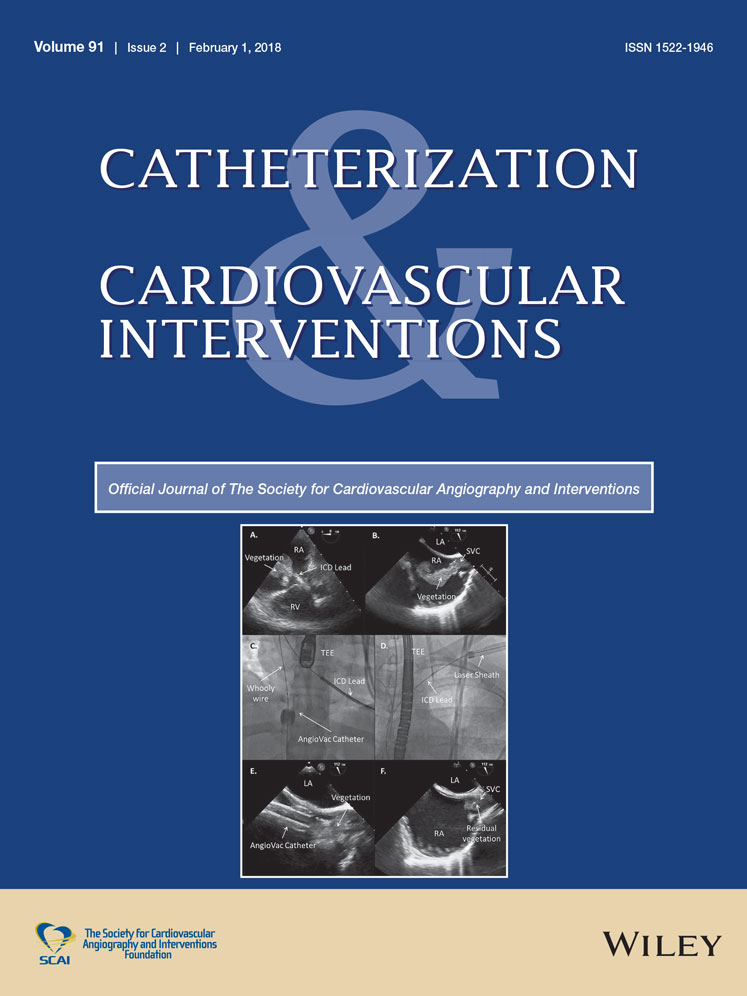Towards a contemporary, comprehensive scoring system for determining technical outcomes of hybrid percutaneous chronic total occlusion treatment: The RECHARGE score
Disclosures/Conflicts of Interest: Jo Dens received grants from TopMedical (Distributor of Asahi Intecc co. materials), Boston Scientific, Vascular Solutions, and Orbus Neich for teaching courses and proctoring. Simon Walsh and James C Spratt are consultants for Abbott Vascular, Boston Scientific, Medtronic, and Vascular Solutions. Simon Walsh received research funding from Abbott Vascular, Boston Scientific, and Nitiloop. Paul Knaapen and Erwan Bressollette received honoraria from Boston Scientific for proctoring. Pierfrancesco Agostoni received institutional honoraria from Aquilant, Meril, Neovasc, Genae, and Angiodynamics. Alexandre Avran received grants form Abbott Vascular, Boston Scientific, and Biosensor for teaching courses and proctoring. John Irving is a proctor for Boston Scientific and Vascular Perspectives. Elliot Smith is proctor for Boston Scientific and receives honoraria from Vascular Solutions, Abbott Vascular, and Vascular Perspectives. Alan J. Bagnall received proctor and speaker fees from Abbott Vascular and Astra Zeneca. Benjamin Faurie is proctor for Boston Scientific and consultant for CORDIS. Paul Kelly is a member of the advisory board of Boston Scientific and Abbott Vascular. For the remaining authors, nothing was declared.
Abstract
Objectives
This study sought to create a contemporary scoring tool to predict technical outcomes of chronic total occlusion (CTO) percutaneous coronary intervention (PCI) from patients treated by hybrid operators with differing experience levels.
Background
Current scoring systems need regular updating to cope with the positive evolutions regarding materials, techniques, and outcomes, while at the same time being applicable for a broad range of operators.
Methods
Clinical and angiographic characteristics from 880 CTO-PCIs included in the REgistry of CrossBoss and Hybrid procedures in FrAnce, the NetheRlands, BelGium and UnitEd Kingdom (RECHARGE) were analyzed by using a derivation and validation set (2:1 ratio). Variables significantly associated with technical failure in the multivariable analysis were incorporated in the score. Subsequently, the discriminatory capacity was assessed and the validation set was used to compare with the J-CTO score and PROGRESS scores.
Results
Technical success in the derivation and validation sets was 83% and 85%, respectively. Multivariate analysis identified six parameters associated with technical failure: blunt stump (beta coefficient (b) = 1.014); calcification (b = 0.908); tortuosity ≥45° (b = 0.964); lesion length 20 mm (b = 0.556); diseased distal landing zone (b = 0.794), and previous bypass graft on CTO vessel (b = 0.833). Score variables remained significant after bootstrapping. The RECHARGE score showed better discriminatory capacity in both sets (area-under-the-curve (AUC) = 0.783 and 0.711), compared to the J-CTO (AUC = 0.676) and PROGRESS (AUC = 0.608) scores.
Conclusions
The RECHARGE score is a novel, easy-to-use tool for assessing the risk for technical failure in hybrid CTO-PCI and has the potential to perform well for a broad community of operators. © 2017 Wiley Periodicals, Inc.




